Story highlights
Jockeys reveal their daily diets leading into big races
Strict weight guidelines for jockeys are maintained
Some weigh themselves twice a day
Scrambled eggs and lean meats or fish are common
Breakfast like a king, lunch like a prince and dine like a pauper, or so the old saying goes.
It’s a mantra not always abided by in the modern world, least not by your modern-day jockey.
Competing while maintaining a certain weight ensures that riders stick to a regimented diet to stay fit and healthy.
CNN Sport finds out from four leading jockeys as to just what makes up their championship diet.
Jim Crowley
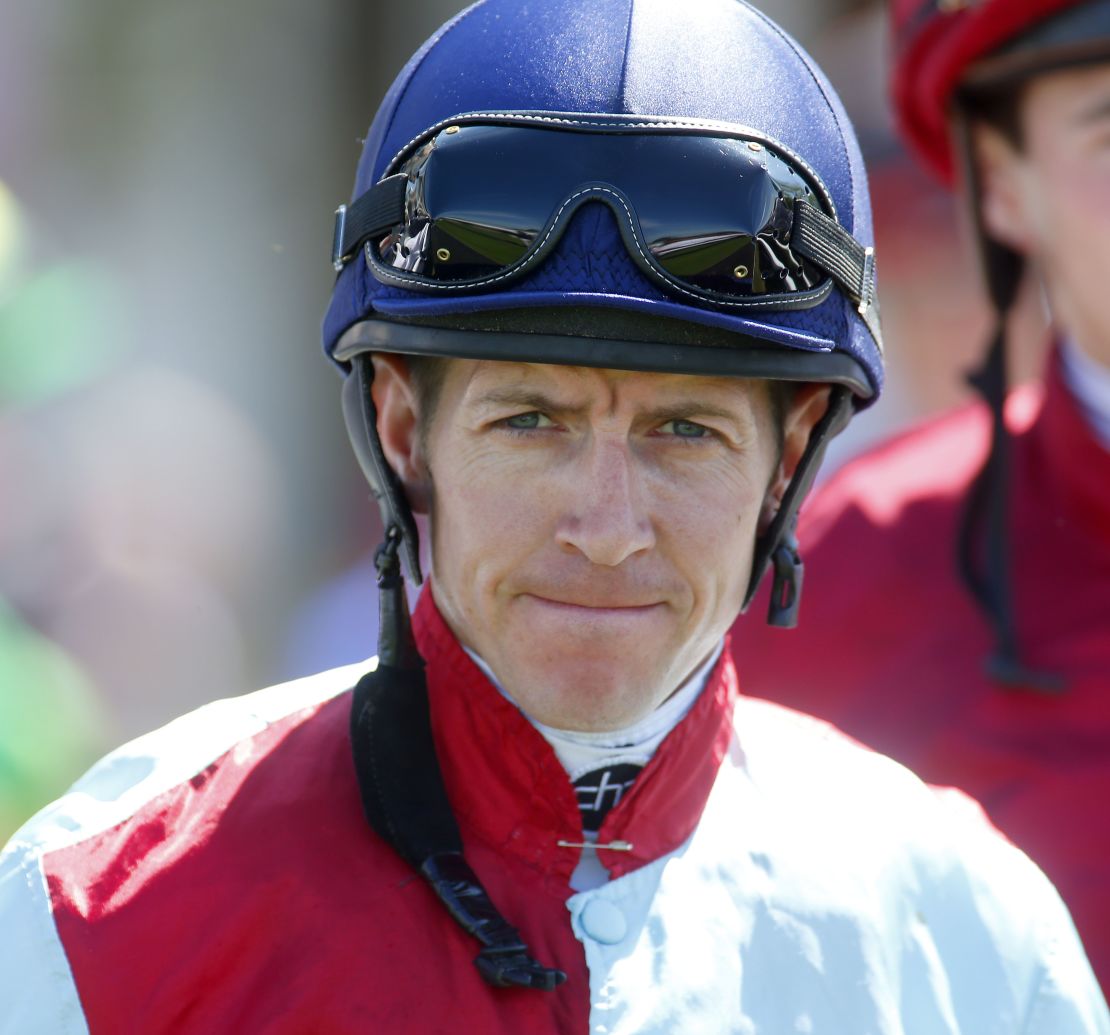
Breakfast: Scrambled eggs and ham with a green tea, which is probably the best thing for you to get the metabolism going.
Lunch: When I’m at the races I won’t each much. I’ll probably pick at something high in protein, a handful of jelly babies or a cup of sweet tea.
Dinner: Steak and salad.
What’s your ideal time to eat before a race? I either exercise horses or run most mornings, so I’ll eat as soon as I can after that as my metabolism will still be up and helps to burn it off.
What do you eat after a race? After a race I’ll have something small on offer at the races. Maybe a chicken wing or something protein-based, or if I’m feeling low on energy I’ll have a bit of chocolate or a sweet tea.
What’s your dream meal? A curry, or I do love a roast dinner with all the trimmings.
What would you eat regularly if you weren’t racing? I keep a balanced diet anyway so I wouldn’t change too much, but maybe a few more carbs would be in my diet.
What’s your secret “superfood” and why? Eggs – I have my own chickens at home and their eggs are “different gravy.”
Is your horse given a special treat? I think most horses would choose to have a pick of grass.
Read: Queen’s unwavering passion for horse breeding
Tom Marquand
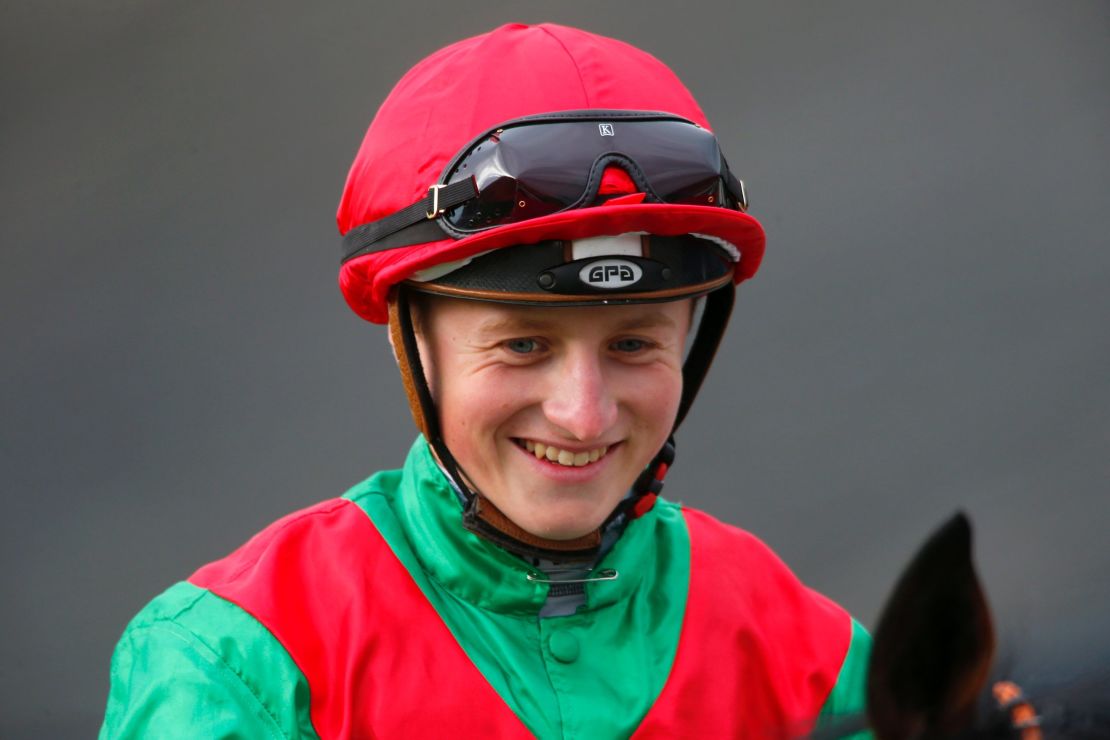
Breakfast: A bowl of porridge with some honey or a banana with a green tea. Sometimes a coffee too.
Lunch: Depending on what’s on offer at the races, I’ll usually have something protein-based with a bit of salad. This might be some roast chicken or slices of roast beef mixed in with a green salad.
Dinner: Again, similar to my lunch I’ll have something high in protein with some salad or veg. Fish is always ideal to have in the evenings as it fills you up without actually eating that much. If I’m finished riding early at the races, I love to get back and cook a bit of sea bass or mackerel on the BBQ in the evenings. It makes it a little more fun.
What’s your ideal time to eat before a race? On a usual morning I’ll have a coffee at about 6 a.m. to get me going and then I muck out the horses and exercise them. Then I’ll have my porridge around 9 a.m. and then finish off any other work I need to do before I head off to the races. Lunch is then usually at 1 p.m., but I fit my diet around my work schedule so it depends on when I’m racing.
What do you eat after a race? After a race if I need a bit of energy I’ll have some chocolate. I’m a sucker for chocolate or ice cream.
What’s your dream meal? A big steak with potatoes and veg, and then a warm chocolate brownie with ice cream for dessert.
Read: Royal Ascot hats that defy gravity
What would you eat regularly if you weren’t racing? Carbs are a big no as a jockey but I like pasta. During the summer I stay away from it, but during the winter I’ll eat pasta as I don’t need to be as conscious about my weight.”
What’s your secret “superfood” and why? My biggest tip is to always eat breakfast. If you miss your first meal of the day, you feel low on energy and flat. Eating a proper breakfast gets your metabolism going and sets you up for the day.
Is your horse given a special treat? Horses like all sorts of treats, perhaps a polo or a crunchy carrot.
Pat Cosgrave
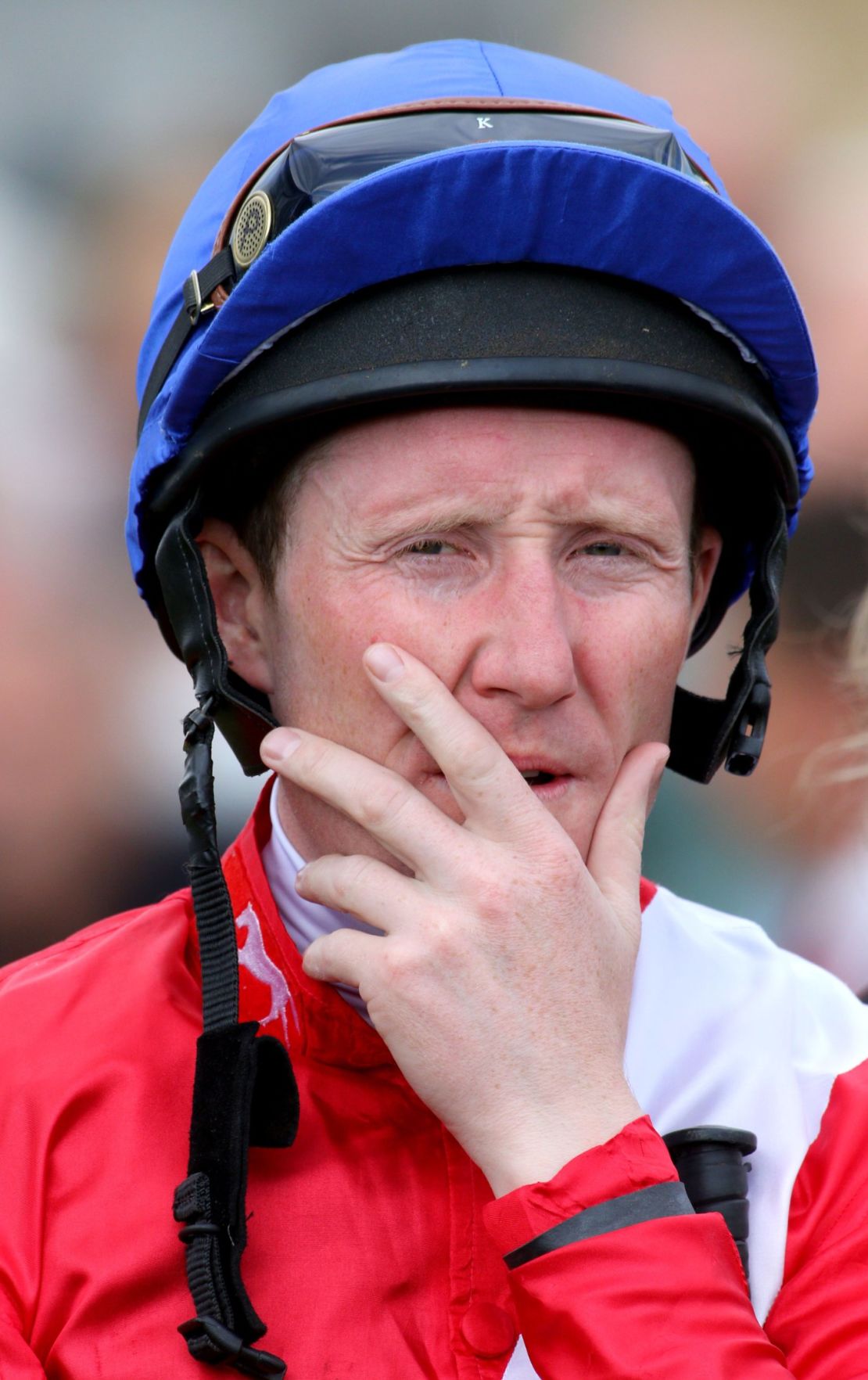
Breakfast: Normally I’d have poached eggs with a bit of cottage cheese and some ham or salami, and then a cup of green tea.
Lunch: I wouldn’t have much to eat for lunch but something high in protein at the racecourse, although I would stay away from things like fish fingers as they’re covered in bread crumbs.
Dinner: Basically any type of fish with salad. Salmon or sole are my favorites. Or perhaps some chicken with couscous or some lentils.
What’s your ideal time to eat before a race? I have to get up early at 5 a.m. most mornings to exercise horses so I like to have a green tea then to get me going. Then once I’m finished with the early-morning exercise, I’d usually eat my breakfast around 8.30 a.m. to 9 a.m. so I don’t feel too full before the races.
What do you eat after a race? If I need a bit of an energy boost I’ll have a bit of chocolate or maybe a sweet tea, but I try and stay away from this if I can.
What’s your dream meal? I don’t get to treat myself too often but a good steak and a glass of red wine would be top of my list.
Read: Royal regulations for Ascot’s fashionistas
What would you eat regularly if you weren’t racing? Bread or potatoes would be what I would eat more of if I wasn’t a jockey. I have to stay away from them but I do give in sometimes.
What’s your secret “superfood” and why? My biggest tip is to drink plenty of water and keep as rehydrated as possible.
Is your horse given a special treat? One of those extra strong mints always go down well!
Oisin Murphy
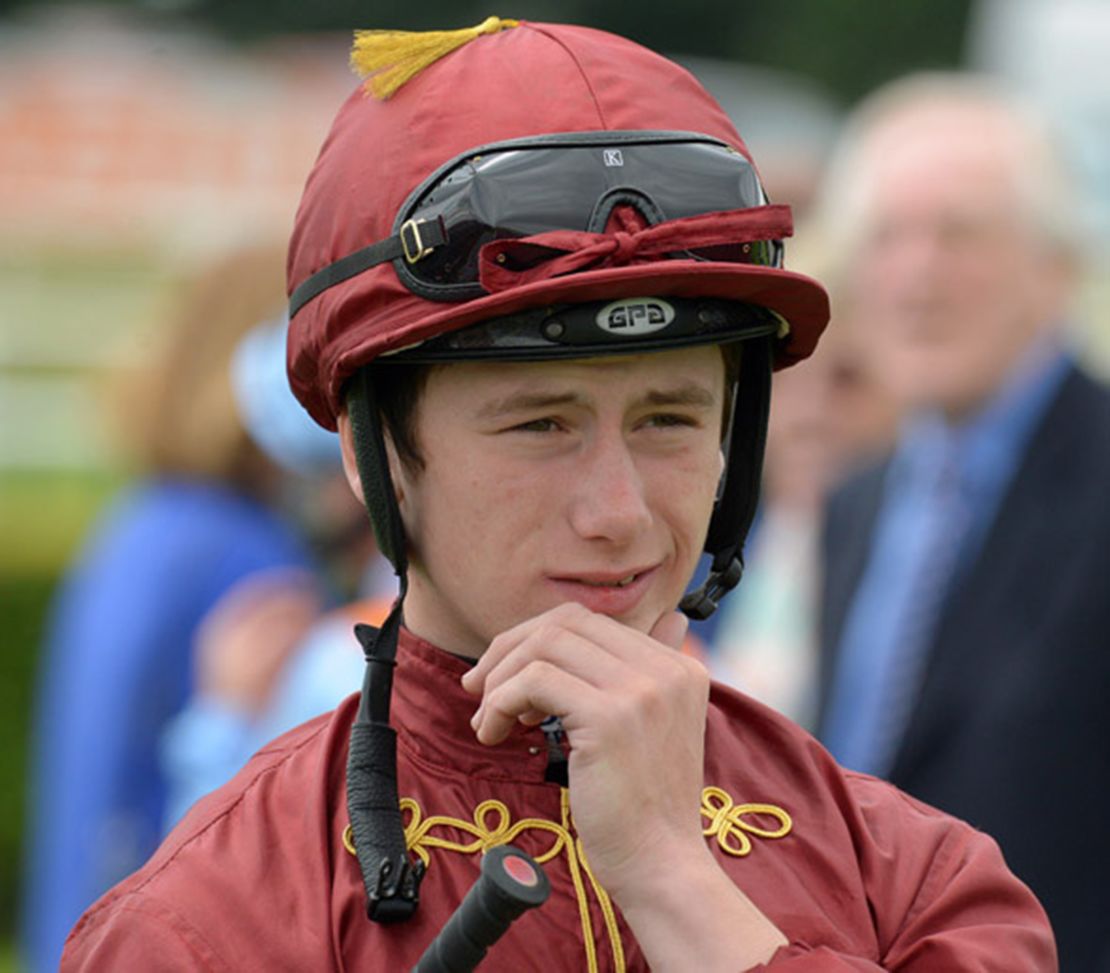
Breakfast: Today was scrambled eggs – three and I like them runny – on two slices of Irish brown soda bread. It depends on what weight I have to do, though. I’m on the scales first thing every morning and last thing at night.
Lunch: I don’t drink tea or coffee but am addicted to orange squash. I will drink this with sparkling water throughout the day and probably have something like a couple of prawn skewers for lunch.
Dinner: Again, depends on my weight, but I will probably have a hot meal, such as roast chicken or fish pie.
What’s your ideal time to eat before a race? Obviously I wouldn’t eat too close to going out for a ride but I don’t get too carried away with this. I don’t suffer from stomach cramps or anything like that.
What do you eat after a race? Haribo Star Mix sweets. I’m slightly addicted but you can’t eat too many as they can be quite dry.
What’s your dream meal? Roast lamb.
Read: Harzand wins UK’s richest horse race
What would you eat regularly if you weren’t racing? Well, I’d probably be 15 stone (95 kg) and I’d be training as a chef! I love fish, so lots of mussels, noodles and king prawn Thai green curry.
What’s your secret “superfood” and why? Scrambled eggs as it’s tasty, light and delicious.
Is your horse given a special treat? I used to have a jumping pony who would eat anything – including an ice cream and flake on one occasion!
…and what about the horses?
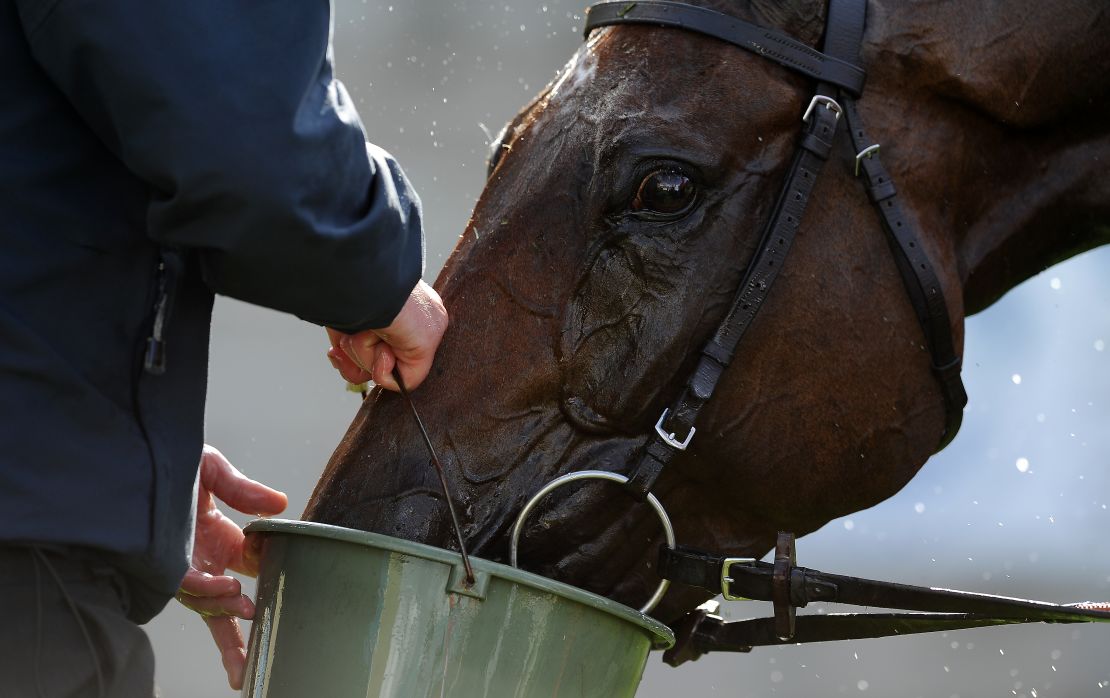
That’s the jockeys covered, but what do their horses’ diets look like?
Catherine Rudenko, head of equine nutrition at horse feed company Dodson & Horrell – the official horse feed supplier to the Queen – has the answers.
“Horses cannot carb load before an event like a human can, so their diet remains largely consistent coming up to the race,” Rudenko says. “The area of focus is post-race feeding, where the diet can be altered to speed up recovery and return muscle glycogen levels to normal.
“Horses will eat around two to three percent of their body weight per day. The majority of their diet when in training is traditionally comprised of grains, dominantly oats, which are known for their health benefits thanks to containing beta-glucans, a type of soluble dietary fiber.
Read: Lords and My Fair Ladies swan about
“Dehydration is a major factor in performance and horses will be well supplemented with electrolytes after racing to return fluid balance to normal. A horse can easily lose 10 liters of sweat when galloping on a hot day, which is nearly 1.5 stone (9.5 kilograms) as a comparison.

“The major electrolyte a horse needs is sodium at approximately 25g per day, meaning to achieve that intake the horse needs to eat 62.5g of salt.”
